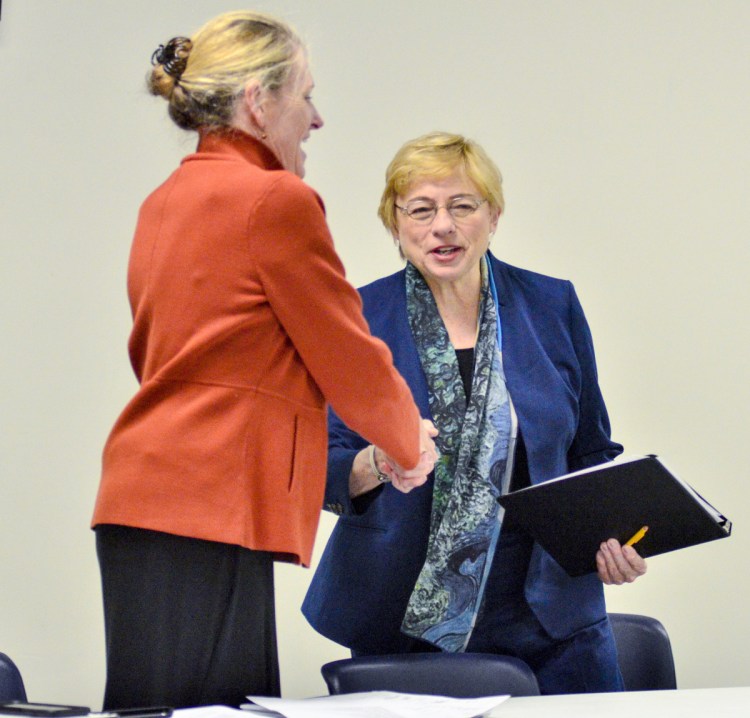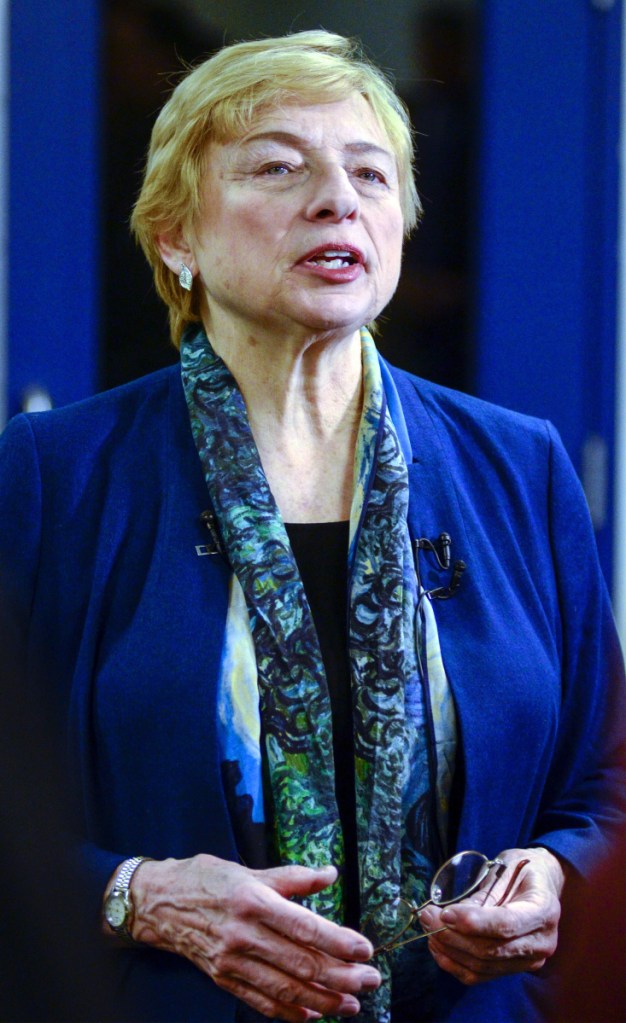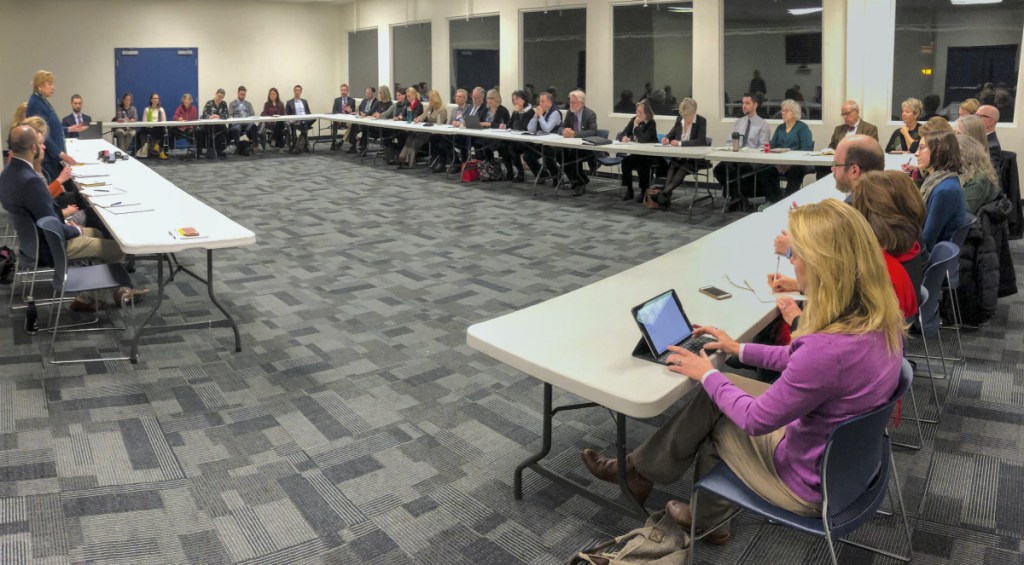HALLOWELL — More than 6,000 people have tried to obtain Medicaid coverage since July, including 529 who have enrolled since Gov. Janet Mills issued an executive order to expand the program last week.
At the same time, the Department of Health and Human Services is fielding 2,000 calls a day about expansion and is processing claims that were rejected under former Gov. Paul LePage.
Mills and her nominee for DHHS commissioner, Jeanne Lambrew, reported the figures on Medicaid expansion at a DHHS roundtable for health care providers and advocacy groups Thursday and a subsequent news release.
The governor said Maine has the money to pay its share of expansion costs until the next state budget is passed, and that her budget would fund expansion for the next two years without a tax increase.
LePage worked to block expansion of the system despite a statewide ballot measure approving it in 2017. Mills said eligible applicants had been denied services, but her administration would now move forward with sorting out those claims to provide coverage to those eligible.
She said of the 6,000 new applicants, about 3,500 sought benefits during the third fiscal quarter of 2018, which ended in September, while the remainder have filed since.
DHHS WEBSITE UPDATED
Mills and Lambrew appeared before a group of about 40 health care industry lobbyists and nonprofit advocates to discuss a range of issues from mental health care to poverty. The meeting, held at the Ice Vault Arena, was billed as a roundtable discussion to share information about Medicaid expansion.
Lambrew announced that she would launch a daily blog at DHHS to update applicants and the public on the progress of expansion as well as share other information.
The first post details updates to the DHHS website, noting that “language was changed to let individuals know that they can apply for coverage; it also lets people who already applied know that we will be back in touch.” The blog notes that in the last week, 529 individuals had been granted coverage under the expansion and that DHHS is receiving about 2,000 calls a day since Mills issued an executive order directing the department to move forward with expansion.
LePage fought against expansion by vetoing bills passed by the Legislature to expand the system and refusing to fund it after voters approved it, taking that battle into the state’s courts, where judges repeatedly ruled against him.
Mills said expansion in Maine was long overdue, pointing out that the state’s 39 hospitals provided more than $500 million in uncompensated care in 2017. Under the federal Affordable Care Act, Medicaid expansion would bring at least that much in federal matching funds into Maine, she said.
The expansion could add as many as 70,000 people to the rolls, although some estimates show as many as 90,000 new enrollees. Mainers who are newly eligible under expansion can be earning up to 138 percent of the federal poverty level, or about $34,600 a year for a family of four. Those who earn slightly more than that can obtain inexpensive insurance through the ACA individual marketplace.
‘SMART PUBLIC POLICY AND THE LAW’
About 273,000 Mainers currently have Medicaid, a federal program operated by the states. Ninety percent of the cost of Medicaid expansion is funded by the federal government, and Maine would draw down more than $500 million annually in federal funds to pay for health coverage. Medicaid operates in Maine under the name MaineCare.
The state’s cost for expansion has been estimated to be about $60 million a year, and the money is available, Mills said.
“It is the law of the land in Maine, the money is there in the Medicaid account right now, there is no reason to delay,” Mills said. “We don’t want to delay another minute, another day.”
She later said her budget would continue to fund the expansion and would do so without raising additional taxes in Maine.
Mills, formerly the state’s attorney general, called the expansion “smart public policy and the law.”
Advocates at the meeting asked Lambrew a variety of questions, including whether DHHS staff members were now going to be more helpful in assisting residents who apply for Medicaid.
“There have been a lot of folks who have experienced a lot of ‘nos,’ ” said Stephen Butterfield, a representative of the Leukemia and Lymphoma Society of Maine.
Lambrew said her goal would be to change that, and that she believes most DHHS workers are there to serve the people of the state.
“Our job is to provide for the welfare, health, security, quality of life for people who our department serves,” Lambrew said.
Scott Thistle can be contacted at 791-6330 or at:
sthistle@pressherald.com
Twitter: thisdog
Send questions/comments to the editors.





Comments are no longer available on this story